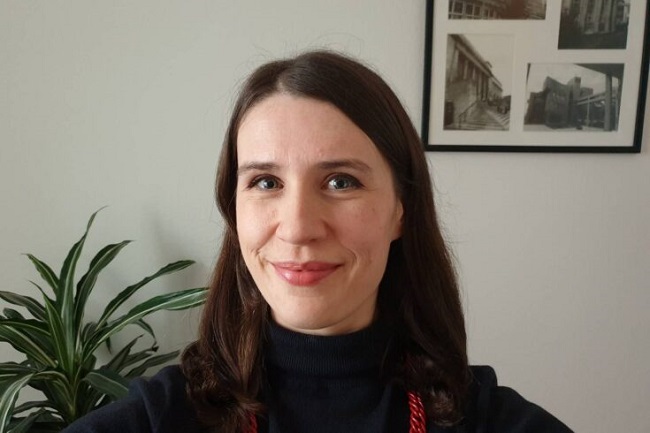The Circular Economy Powered Renewable Energy Centre (CEPREC) was officially launched on Monday, February 10, 2025, marking a ground-breaking step towards addressing Africa’s energy and e-waste challenges.

Operating as a Pan-African, multisectoral, and interdisciplinary Research Centre, CEPREC unites academia, government, and industry to drive collaborative research, innovation, and capacity building. The Centre is committed to developing cutting-edge knowledge and skills that leverage circular economy principles to support Africa’s energy transition.
CEPREC is funded by the UK Government’s Ayrton Fund, a £1 billion commitment to clean energy research and development. The initiative is supported by an extensive partnership involving over 30 stakeholders from government, industry, and academia across the United Kingdom and sub-Saharan Africa.
Initially, CEPREC will operate in six sub-Saharan African countries – Nigeria, South Africa, Kenya, Sierra Leone, Namibia, and Rwanda – before expanding further across the continent.
Frances Wood, UKRI International Director, said: “The Ayrton Challenge Programme demonstrates the power of research and innovation to address critical global challenges. These projects exemplify how equitable, interdisciplinary collaboration can unlock transformative solutions, ensuring a sustainable and inclusive energy future for all.”
CEPREC will empower local researchers, policymakers, and entrepreneurs to develop, manage, and scale circular microgrid projects through workshops, training programmes, and interdisciplinary knowledge-sharing.
Professor Muyiwa Oyinlola, Director of CEPREC and Professor of Innovation for Sustainable Development at De Montfort University, said: “CEPREC was set up to transform the way we think about waste, turning it into opportunity, empowering communities, and driving economic transformation. This initiative will set a new benchmark for sustainable energy solutions across Africa.
Professor Layi Alatise, Deputy Director (Engineering) of CEPREC, and Professor in Power Electronics at University of Warwick, said: “When technology is implemented without local capacity to maintain and expand it, sustainability is compromised. CEPREC will prioritise knowledge transfer and skills development to ensure its impact is long-lasting. By integrating circular economy principles into Africa’s energy sector, we are creating a resilient and sustainable future.”
Professor Giuliana Battisti, Deputy Director (Social Sciences) of CEPREC and Professor of the Economics of Innovation at Warwick Business School, added: “This initiative represents a unique opportunity to align cutting-edge research with real-world applications. By combining technological innovation with policy integration, we can create a self-sustaining ecosystem for Africa’s renewable energy future.”
Chatham House, the globally renowned think tank, is also a collaborator, to ensure that research is transformed into actionable policies, shaping national, regional, and international energy strategies while guiding key decision-makers in sustainable energy and circular economy practices.
Dr. Patrick Schroeder, Senior Research Fellow at Chatham House, who is leading CEPREC’s Policy engagement, also said: “The transition to a circular economy is not just an environmental imperative; it requires a comprehensive international policy framework that fosters innovation, collaboration, and sustainable practices across all sectors.”
CEPREC’s initial focus countries were strategically selected to represent the diversity of sub-Saharan Africa, covering East, West, and Southern regions. These countries differ significantly in energy access rates, economic scale, and population size – from 85% energy access in South Africa to just 5% in rural Sierra Leone, and from Nigeria’s $477 billion GDP to Sierra Leone’s $4 billion economy. This diversity ensures that CEPREC addresses a broad spectrum of challenges and opportunities across the continent.
The long-term vision for CEPREC is to establish itself as the leading research cent redriving new knowledge, policy development, and skills empowerment for Africa’s energy transition. The initiative aligns with key UN Sustainable Development Goals (SDGs), particularly:
- SDG 7: Affordable and Clean Energy
- SDG 12: Responsible Consumption and Production
- SDG 13: Climate Action
With the official launch of CEPREC, key stakeholders are invited to collaborate on this transformative initiative.
In her remarks, Abi Okoya, Head of Strategic Partnerships, said, “CEPREC is committed to forging transformative partnerships that drive Africa’s sustainable energy future. This is more than a Centre – it’s a movement to unite government, industry, and academia in creating innovative, circular solutions that will redefine how we power our communities. We invite stakeholders from across the continent and beyond to join us in scaling impact, driving policy change, and ensuring that Africa leads the global transition to sustainable and inclusive energy systems.”
